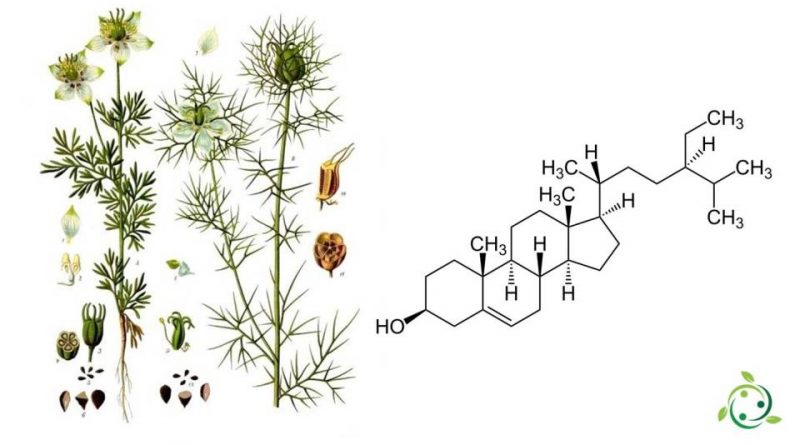β-sitosterol
β-sitosterol
Β-sitosterol is a phytosterol whose term in the official IUPAC nomenclature is: 10R, 13R-dimethyl-17R- (5R-ethyl-6-methylptan-2R-yl) -2,3,4,7,8,9, 11,12,14,15,16,17-dodecahydro-1H-cyclopenta [a] phenanthren-3S-ol.
This phytosterol is known by the alternative names of: β-sitosterin, 22,23-dihydrostigmasterol and stigmast-5-en-3-ol.
Β-sitosterol is a very naturally occurring phytosterol, especially in the plant kingdom; we find it in some plants such as: Nigella sativa, Pecan, Serenoa repens, Avocado, Zucchini, Pygeum africanum, Cashew, wheat germ, corn oil, soybeans, species belonging to the Hippophae genus, goji berries, Wrightia tinctoria and other plants.
Beta-sitosterol, like all phytosterols, is similar to cholesterol, although the latter is not present in plants. Phytosterols are not synthesized in humans but are introduced exclusively through the diet. Typical plant sterol intake ranges from approximately 200 to 400 mg / day and is higher in vegetarians.
However, it should be remembered that significant doses of sitosterols significantly increase the incidence of coronary heart disease.
Warning: The information shown is not medical advice and may not be accurate. The contents are for illustrative purposes only and do not replace medical advice.

